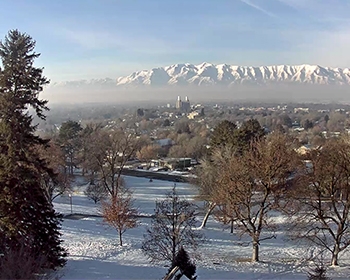Research Seeks Understanding of Air Quality Perceptions and Impacts on Travel Behavior
Posted: Sep 25, 2024
 Research at Utah State University will help guide programs designed to change travel behaviors in a way that will improve air quality. The research provides insight into people’s perceptions of air pollution and how they change (or do not change) their travel behavior in response to episodes of area-wide poor air quality. The work is a step toward designing programs intended to change travel behavior in a way that will positively impact air quality. The work is particular to regions of the mountainous western United States that experience episodes of poor air quality because of temperature inversions in bowl-shaped urban valleys, the formation of ground-level ozone in sunny locations, or from wildfire smoke. With large and growing populations in these areas, episodic area-wide air pollution is an important public health issue. Current (mostly voluntary) programs in those areas encourage travel behavior change through reduced driving, shifting to public transit and active transportation modes, teleworking, and other strategies. However, there is little research to show whether those programs are effective or not.
Research at Utah State University will help guide programs designed to change travel behaviors in a way that will improve air quality. The research provides insight into people’s perceptions of air pollution and how they change (or do not change) their travel behavior in response to episodes of area-wide poor air quality. The work is a step toward designing programs intended to change travel behavior in a way that will positively impact air quality. The work is particular to regions of the mountainous western United States that experience episodes of poor air quality because of temperature inversions in bowl-shaped urban valleys, the formation of ground-level ozone in sunny locations, or from wildfire smoke. With large and growing populations in these areas, episodic area-wide air pollution is an important public health issue. Current (mostly voluntary) programs in those areas encourage travel behavior change through reduced driving, shifting to public transit and active transportation modes, teleworking, and other strategies. However, there is little research to show whether those programs are effective or not.
Patrick Singleton, Ph.D.
Utah State University
Investigating Travel Behavior and Air Quality in Northern Utah
MPC-24-528